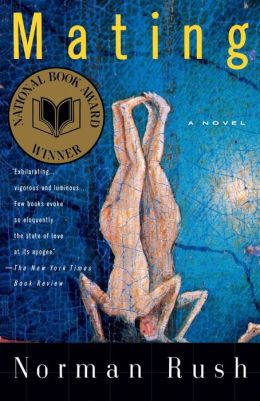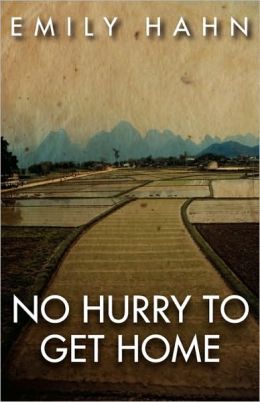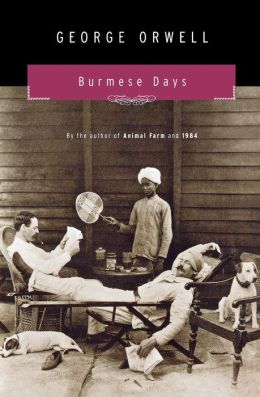By Molly Bradley
The village Mouit was like living on a beach without the water: just a vast expanse of shore with buildings spattered here and there on the sand, with no logic to it.
We were there for a brief stay to explore another part of Senegal. The group of students I was traveling with would reunite in the nearby town of Saint Louis at the end of the week, but for now, we were scattered in separate families in the village of Mouit. We’d left our host families in Dakar to be hosted yet again: a home away from home away from home. Instead of feeling further removed, it all started to feel pretty much the same. Family became a very relative term.
Aside from my parents, I grew up with just one sibling (and, only later, a dog). My family is by no means quiet, but it’s not large. Four people can only be so rambunctious.
Unexpectedly, the family that adopted me in Dakar was even slimmer. I called my homestay parents Aunt and Uncle, Tata et Tonton, because my ‘sibling’---twelve-year-old Malik---was their nephew. It felt more or less like family.
So it was alarming when approximately nine and a half flailing sets of limbs accosted me as soon as I walked in the gate of my Mouit homestay family. Nine of them were chattering children, spanning roughly seven through twelve years old. The half-set of limbs only constituted half a set because it belonged to a baby carried by one of the girls, and the baby didn’t quite have control of all her components. Her eyes stuck to me that whole first night.
They dragged me to meet my homestay parents. Neither spoke French, but both were all easy smiles and steady nods. The village was Wolof, but my language still wasn’t up to native speed. I tried to gesture a Hello, Thank you for having me, I’m very grateful, but fell upon no convenient mimes for those words, save a wave for the Hello. We stood smiling a few moments, motionless. Then my father left the fenced complex. As chief of the village, he presumably had better things to do. My mother smiled, shrugged and shuffled off.
Good to be home.
The complex was made up of a few small rooms, each a separate low boxy building. My siblings indicated my room, where I could put down my bags.
“This is Binta’s room,” said one of the girls, in French. Only the girls had accompanied me into the room. They were all watching me.
“Her room,” another girl said, pointing.
Another person had materialized. This girl was older: it was in her height; the way she held her face; her body. This fifteen-year-old (I asked her age later) was more womanly than I would probably ever be, judging by my own body at twenty years of age.
Binta watched me with a slightly curved mouth. Either that was her neutral face or she was smiling just a little, watching the adopted tubaab try to clumsily inhabit her bedroom. Binta commanded the space. I felt flustered by it.
“Thank you,” I said to her. “C’est vraiment gentil.” That’s really nice of you.
She just curved her lips and walked out.
***
I spent the evening with more siblings than I could count in what functioned as the family room. It was where the kids spent all of their time when they weren’t in school or doing chores. This was because it had a TV. Mouit was a unique village in that regard: it was typical of rural Senegalese villages in most ways except for the fact that it had electricity. Like most places in the world, the TV sapped not only electrical but human energy. It had most of us hooked most of the time. There was no end to the soccer and the Senegalese soap operas.
I finagled some conversation out of a few people. For the most part, any questions I asked were met by a rush of eager voices that I didn’t have time to distinguish before they fell abruptly silent again.
There were a few older teenagers, mostly boys, already in the room when I came in with the younger kids. They occupied the mats to the right of the television, backs against the wall, alternately watching the screen and flipping open their cell phones. Every now and then, when they got their phones out, a few of the younger ones would look over with obvious envy.
Toward nine in the evening, a man walked in. He looked relatively young. He stood in the doorway awhile, watching the screen. No one glanced his way. I was at the very edge and toward the back of the mat where all the kids crowded. Eventually he sat between the door and me, his back against the wall, on the concrete floor.
Given how close his face was to mine in the dark, it seemed odd not to acknowledge it. I turned to him and said hello in French and asked his name.
His mouth moved, and he let his breath play in and out of his lips before he said, “I’m Mamadou. I don’t speak French.”
Was that English? It was definitely English.
“I’m from the Gambia,” he added.
“Oh,” I said. “I’m from---well, I’m American. But my family lives in France. I grew up there.”
“America, France,” he repeated. “It must be beautiful.”
He asked me my name.
“Mama,” I said with a wry smile. “They named me after the other Mama.”
“Oh, yes, the baby,” he said. Host families commonly named their tubaabs---white people, or foreigners---after an existing family member. Ordinarily this family member was one older than the tubaab, which made chronological sense---you name someone new after someone who’s been around longer, right? I, however, had been named after the baby, who was still staring at me in the dark.
“But, no,” Mamadou said, “I mean your American name.”
That was a first. We’d become accustomed to giving out our “Obama names” whenever anyone cared enough to ask. Obama delighted people here. It was the most recent great thing about America today, amid all the other great things, thought most Senegalese. Obama was now synonymous with America.
“I’m Molly.”
“Molly,” he repeated. “Molly.”
He was silent awhile, but in the glow of the TV I could see his lips still moving, playing with the name. Even though English is the official language of the Gambia, the names are mostly the same as those in Senegal. After all, it’s just a little crumb trapped in Senegal’s big gullet. It sits there small and quiet, almost blending in.
***
He was from the Gambia and he was making his way upward, traveling steadily toward the top of Africa. He’d left his family three, four years ago, he said; what was left of his family, anyway. It sounded sinister when he first said it, but he clarified that several of his brothers had already left to do what he was doing now: working to make a little money to send back to their family, and a little money to get themselves somewhere else.
Mamadou wanted to go to Europe. Or America.
“England. I think England is nice,” he said. “Maybe I will go there, then America. Or maybe France, but I don’t think I will like France so much as England, or America.”
“Why?”
“I was told it’s very like Senegal,” he said.
He kept saying that he just had to get to Europe, and then he’d list the places he would go: Germany, maybe; England; America. . .
I began to suspect he may have thought they were all next door. I had neither the opportunity nor the heart to correct him. A few times I said, “Well, America’s really far from England, so. . .” He only paused, said “I see, alright,” nodded a little, and went on.
I noticed that a few of my siblings were glancing over at us from time to time. Not really when Mamadou spoke, since a lot of the time he spoke it was to no one, commenting on a character in the soap, or to wish---somewhat rhetorically, since he said it so softly and was paid no heed---that the television were tuned to a different channel. But when I replied, a few bright eyes in the dark flitted our way, then briefly about the room as though to see if anyone else had heard, then back to the TV. No one but the two of us, though, said a word.
We talked intermittently through the few hours we sat there in the family room. My host family was hosting him, too, for four months while he worked in the onion fields owned by my host father. There were a lot of fields, he said. My father, the chief, owned several. Mamadou worked and watered them from five in the morning until about five in the evening. Then he came home for dinner and a night’s good rest. I went to bed around the same time he did---nine-thirty, ten---while the rest of the family sat up later. It was a little embarrassing that, at the end of a day during which I had not exerted myself at all, I had no more stamina than a man who’d worked twelve hours carrying heavy buckets of water in the hot sun. I decided it was mental fatigue, the Wolof and all. Yeah. I had to believe I was doing some pretty challenging stuff in Senegal.


 At night, the cathedral's tower jetted out in the black sky, and the rest of the sassi glimmered in shades of yellow and orange. Have you heard of the movie "The Passion", by Mel Gibson? It was shot here.
At night, the cathedral's tower jetted out in the black sky, and the rest of the sassi glimmered in shades of yellow and orange. Have you heard of the movie "The Passion", by Mel Gibson? It was shot here.




















